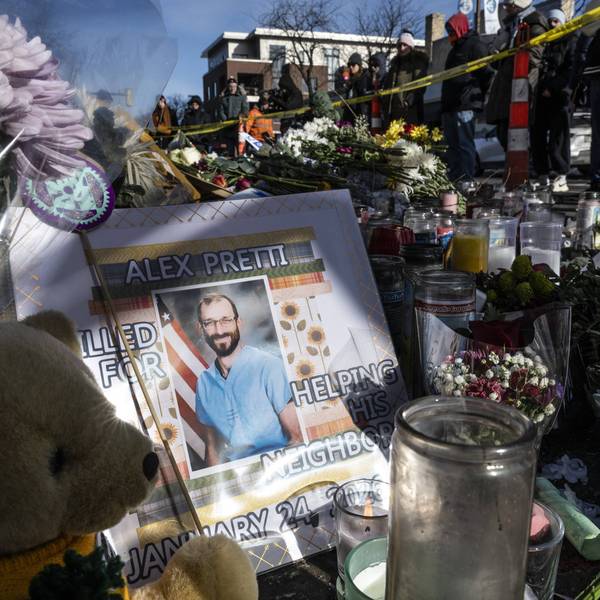I have spent my career battling violence against women. As a prosecutor, I bore witness to the devastating effects of sexual abuse, rape and child trafficking on girls. I have also seen how our society has failed to protect child victims of sexual violence.
The Trump administration has worked to step up prosecutions of traffickers and protections for victims, particularly women and children. The government has expressed a willingness to leverage its considerable resources to eradicate human trafficking, and it has followed up this promise by committing increased funding and law enforcement personnel to the problem. This is vitally important work that must continue.
As happens to many victims of trafficking, the very systems that were supposed to protect Lisa Montgomery did nothing.
But I was disheartened to learn that the federal government planned to execute Lisa Montgomery on Jan. 12, 2021. A judge ordered a stay on the case, but the ruling allowed that a new execution date could be set after Dec. 31. Executing Montgomery would be a grave injustice, because she is herself a victim of child sex trafficking.
According to court documents, in Montgomery's early teens, her mother began selling her to adult men for sex. Instead of protecting her daughter's innocence, this woman--whose heavy drinking during pregnancy left Montgomery brain-damaged--allowed her daughter to be raped over and over. This, she insisted, was her child's duty to "earn her keep."
As happens to many victims of trafficking, the very systems that were supposed to protect Lisa Montgomery did nothing. Though school and child welfare authorities suspected abuse, they did not intervene. Montgomery has said she tried to tell authorities what was happening to her, but help did not arrive. Social services removed her older sister from the home because she, too, reportedly had been raped repeatedly, but they left the younger girl behind.
Eventually, Montgomery developed a dissociative disorder, which can be the brain's response to extreme trauma, particularly childhood sexual violence. Mental health experts have explained that there is a direct line from the relentless abuses Montgomery suffered to the tragic crime she later committed. After being coerced into getting sterilized and, according to court documents, in the grip of mental illness, Montgomery strangled a pregnant woman and took the baby from her womb.
Her lifetime of sexual torture is not, as the federal prosecutors insisted at her trial, an "abuse excuse." It is an important and, indeed, unsurprising explanation for her actions that should mitigate in favor of a sentence of life imprisonment without possibility of release.
More than a decade ago, when Montgomery was prosecuted, we did not know as much as we now do about the long-term effects of commercial sexual exploitation of a child. And since Montgomery was sentenced to death, our legal system has evolved to reflect this understanding through the development of laws designed to protect the victims of child sex trafficking. The government must continue to uphold and expand upon these protections.
Tragically, we cannot go back in time to protect Lisa Montgomery, nor can we undo the pain and loss her crime has caused. Even so, President Trump can take a simple but powerful action that would continue his groundbreaking work on behalf of the victims of human trafficking. He can commute Montgomery's death sentence to one of life imprisonment with no possibility of release. This would be an appropriate and just extension of mercy.




